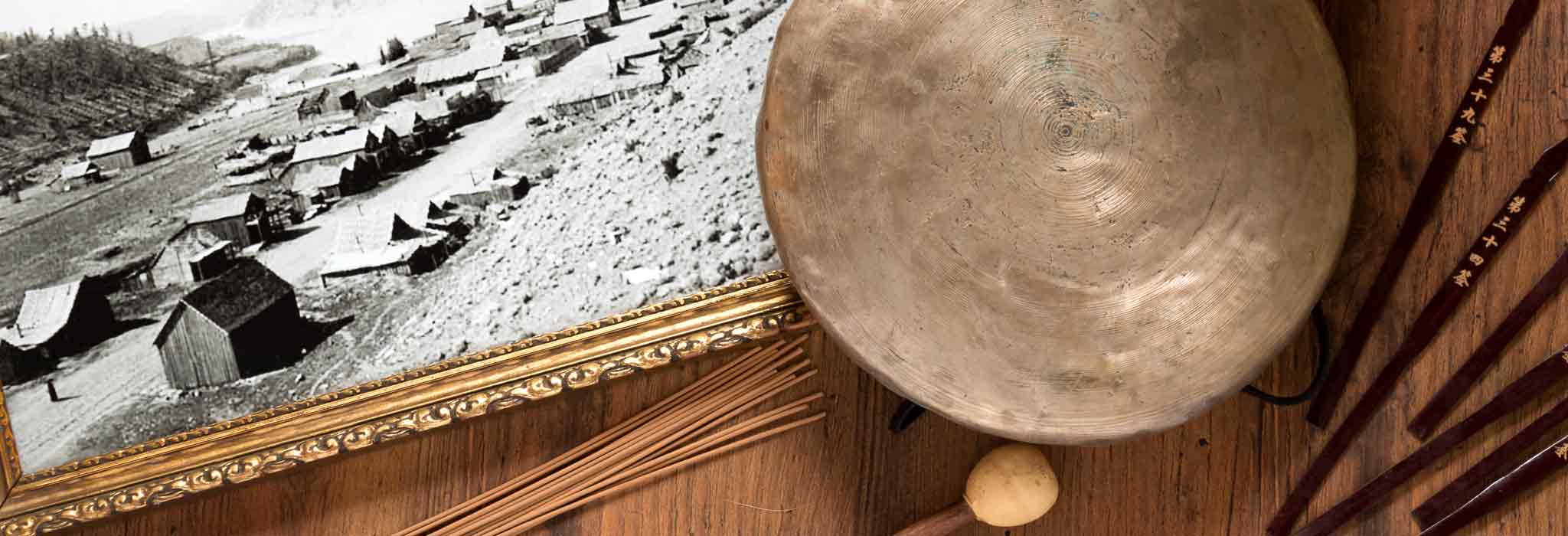Joss House

Traditionally, a Joss House is a place within a communal house where deities are set up on an altar for Chinese people to go and give thanks, or to pray for good health and peace.
Circa 1881, a building known as the Lytton Joss House was built for Chinese people in the Lytton area. It served as a guest house, community meeting space, and a place of religion. Quan Yin (the Goddess of Mercy) and Shen Nong (the God of Agriculture) were among the deities honored there.
The original building was typical of its time, with wood frame construction and wood siding. The entrance was from Lytton’s Main Street and was more elaborate than the other three sides.
The interior of the Joss House was divided into three useful spaces: the main area where the altar and statues resided, a smaller room that served as a guest room, and a small caretaker’s quarters. When the two entrance doors were opened, the altar that housed the deities was clearly visible from the street.
Use of the Lytton Joss House declined by the turn of the century, and a neighboring property owner acquired the building in 1928.
The site was granted official heritage status under Heritage BC’s Chinese Historic Places Recognition Project in 2016. Recognized as a historic place with provincial significance, the Lytton Joss House is included in the BC Register of Historic Places and has been suggested for inclusion in the Canada Register of Historic Places.
In 2019, the museum received the Heritage BC Award for Outstanding: Education and Awareness. The Jury Commented: “Through a large collection of artefacts, The Lytton Chinese History Museum tells the once-unknown stories of a community. They were able to reconstruct what was lost, to enrich the community, bringing everything together in a powerful way – it is especially impressive for a small community.”
